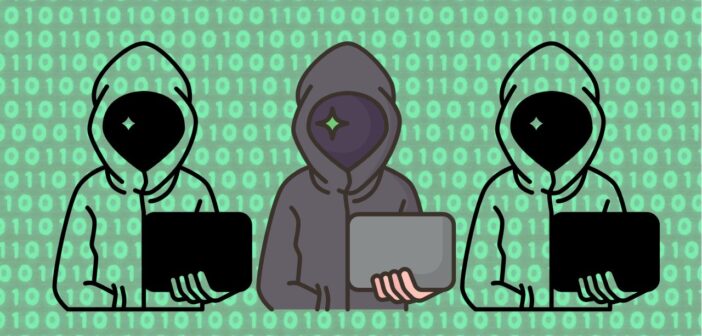Scam and phishing schemes are on the rise campus and nationwide through messaging systems and social media. Some NCC students are becoming targets of these plots, with scammers using email and Instagram as their channel.
College communities receiving phishing messages
The most recent phishing message sent out to NCC community members claimed to be giving away items for free. The subject line of the email said “Complimentary Downsizing Items Available for All Students and Staff.” On Feb. 7, ITS sent an email advising students to delete the message as soon as possible.
“If you have already opened the attachment, please do not correspond via text message to the phone number listed in the PDF. This offer for free items is a scam,” the email said.
However, scam and phishing messages are not specific to NCC. Other colleges across the country like Stanford University and Ohio University have been faced with similar emails.
Different types of scam messages have also been going around outside of the college-sphere in past years. A recurring COVID-19 pandemic cyber scam involved asking victims to follow specific instructions to receive their stimulus check. Additionally, the latest scammers have been impersonating a higher authority to scare their targets.
Nationwide scam plots
Text messages posing as a tollway service have recently become frequent. Asserting they’re from “The Toll Roads Team,” scammers instruct recipients to pay supposed unpaid bills using a special link.
“The Toll Roads Notice of Toll Evasion: You have an unpaid toll bill on your account. To avoid late fees, pay within 12 hours or the late fees will be increased and reported to the DMV. *Website is redacted* (Please reply Y, then exit the sms and open it again to activate the link, or copy the link to your Safari browser and open it) The Toll Roads team wishes you a great day!”
This message may spook drivers who use the expressways as their regular transportation route. In an email interview, NCC student Oliver Wolcott, ‘26, said he received this message in November 2024.
“I don’t have an I-PASS and frequently go through highway tolls,” Wolcott, ‘26, said. “I also rarely pay my tolls so a message stating I have overdue tolls was nothing out of the ordinary. I realized it was a scam once I clicked the link and luckily, I didn’t suffer any effects from clicking it.”
The real The Toll Roads website posted a customer advisory to warn the public about the scam. They added that they do not send texts to non-account holders.
“The Toll Roads is advising drivers to disregard phishing texts being sent to their phones that detail a specific outstanding toll amount or Notice of Toll Evasion,” the advisory said.
Social media scams
Apart from messaging schemes, another kind of scam has become popular—social media account spoofing. This consists of scammers trying to impersonate someone’s already existing social media page. They then use the person’s profile picture to create a fake account.
In an email interview, Lola Furbee, ‘27, explained this exact situation happened with her Instagram on March 19. She found out about it through people she doesn’t normally text.
“They stole my profile picture and were DMing my followers that I have on Instagram,” Furbee, ‘27, said. “They were DMing them ‘Can you do me a favor,’ then sent them a screenshot of some ‘Request help from friends” thing on Instagram.’ They kept DMing things like ‘Can you help me with that?’ and ‘??’ to these people too.”
Furbee, ‘27, noted that Instagram removed the fake account within 24 hours. She said she alerted her followers through an Instagram Story it wasn’t her and to report the account.
How to protect yourself
With various scams circulating, NCC Senior Director of Communication Jeremy Borling offered advice on how to protect yourself.
“Students should be skeptical about emails they receive from people they don’t know,” Borling said. “Students should also pay extra attention to the sender’s address (many will use a familiar display name but will have a suspicious email address). Phishing emails also often try to create false urgency so that you respond quickly without thinking (e.g., an email claiming that your credit card will be charged or your account will be deleted unless you take immediate action).”
Additionally, Borling said scammers commonly send phishing messages for financial gain. They can obtain access to sensitive information such as bank accounts and credit cards if their plot’s successful. Borling added they can attempt data swiping “because personal or account information is valuable and can be sold for profit.”
The bottom line, as Borling put it, “If it is too good to be true, it probably is – even if the message appears to be from someone you know.”
To report anything suspicious sent to your NCC email, forward the message to helpdesk@noctrl.edu.

